

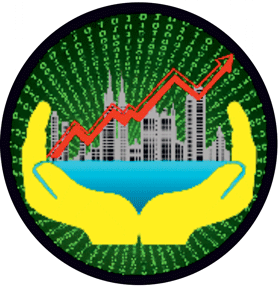

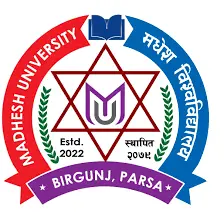

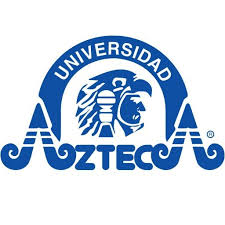

About Chetana’s
Chetana Trust has been at the forefront of higher education in Mumbai since its inception in 1969. With his philosophy of “Education for all”, The Founder President of the Trust, Late Shri Madhukarrao Chaudhari believed in delivering quality education as well as contributing to the overall welfare of the society. Pursuing the same vision, Chetana’s Institute of Management & Research (CIMR), have been imparting quality management education programs to meet the industry requirements. CIMR an institute that has a legacy of 29 glorious years offering AICTE approved, PGDM, PGDM Marketing and Fellow Program in Management (FPM) programs. The Institutes have been consistently ranked amongst the Top-50 Private B- schools in India and amongst the Top-10 in Mumbai by The Times B-School ranking, The Week, Outlook and Mid-Day News. In 2024 and 2025, CIMR was recognized as an Amazing Workplaces® Certified Organization for its commitment to creating an exceptional workplace for its employees. As a testament to it commitment to high quality education and employability skills CIMR received the ET Now Award for Best Private B- School in the 2024 and 2025. The institute has a strong research culture, encouraging faculty and students to engage in rigorous, interdisciplinary research that address contemporary business issues, trends and practices and contribute to industry-relevant knowledge.”
With a focus to ‘Develop ethical business leaders’, Chetana’s undertakes many CSR activities with profit and non-profit organisations. Chetana’s Institute of Management & Research (CIMR), through Chetana’s Centre of Excellence (CoE) offers Management Development Program, Training Programs, Consulting services and undertakes sponsored research projects for different stakeholders. With the aim to bridge the Industry-Academia gap, strong strategic collaborations are developed on various fronts.
Conference Overview
As businesses navigate through technological acceleration, climate change, and evolving societal expectations, focussing on sustainable futures has never been more critical. Innovation in business is one of the key drivers for achieving sustainable futures. By integrating innovative practices, businesses and social enterprises can transform their operations to be more resource-efficient, reduce waste, create societal impact and long-term value for stakeholders. Such a transformation goes beyond adopting new technologies, reimagining business models and fostering a culture of sustainability. The vision to achieve a sustainable future can contribute to creating an inclusive growth by driving economic development that benefits a wide spectrum of society and diverse groups. This process involves creating innovative products and services, develop processes that enhance productivity, generate employment and improve living standards. From circular economy solutions and digital transformation and focus on sustainable innovation is redefining competitiveness and inclusivity in the global business landscape.
While sustainable innovation presents numerous opportunities, businesses and social enterprises face challenges such as regulatory complexity and resource scarcity. Addressing these challenges requires a culture of sustainable innovation, incentivizing sustainable practices, and investing in education and research.
The conference theme, “Sustainable Futures: Leveraging Innovation in Business Practices and Social Enterprises,” highlights the transformative role of innovation in shaping resilient, equitable, and environmentally responsible economic systems.
CIMR’s 9th International conference aims to bring together academics, industry leaders, policymakers, and research scholars to exchange ideas, showcase research, share best practices and deliberate on future pathways toward an inclusive and sustainable business practices.
Through keynote addresses, panel discussions, and research presentations, the conference seeks to explore how businesses and academia can collaboratively contribute to advancing business excellence and promoting societal well-being.
As a prelude to the Conference there a research workshop will be organised for budding and aspiring researchers for developing high quality research papers.
Objectives of the Conference
The conference aims to :
Call for Papers
Extended Abstract upto 1500 words based on qualitative and quantitative research papers, case studies, or practitioner insights are invited from industry practitioners, academicians, research scholars, consultants, and students on the following broad themes.
| Sustainable Business Models & Social Entrepreneurship | Fintech, and Innovative Financial Ecosystem |
|
|
| Sustainable Marketing and Conscious Consumerism | Human Capital, Leadership, and Organizational Transformation |
|
|
| Technology, Digital Transformation, & Green Innovation | Green Operations and Circular Supply Chains |
|
|
Conference Highlights
Publication : Selected full papers will be published in Indexed Journals subject to author approval and paper meeting the publications guidelines.
Case Study Publication : : Case studies form one of the most engaging and insightful components of this conference. The Conference Committee proposes to publish a dedicated Case Study book as a special volume. Teaching Notes are required during the final submission of case -study book. This will allow selected case studies to receive focused attention.
Paper Presentation : Hybrid Mode (in-person and online)
Awards and Recognitions: Each track will have a Best Paper Award. Additionally, a Best Paper would be awarded in different categories such International Researcher, Ph.D / FPM, Research scholar and student.
Networking and Learning Opportunity: Keynote, Workshop, Panel Discussion, Research Paper (Full, Short) and Poster Presentations
Volunteers: Faculty members interested in participating in the conference as a reviewer, session chair, or discussant, can feel free to contact the Conference Convenor.
The listed subthemes are indicative but not exhaustive.
Submission Guidelines
Submission Details
| Details | Dates |
| Submission of Extended Abstract (Upto 1500 words) | 10th February 2026 |
| Announcement of acceptance of Abstract | 8th February, 2026 |
| Last date of Registration | 18th February, 2026 |
Registration
| Category | Charges |
| Academicians and Research Scholar (Upto three authors) | Rs. 2,000 |
| Rs. 1,000 For additional authors | |
| Industry Professional – Participation Only | Rs. 1,500 |
| Industry Professional – Paper Presentation | Rs. 3,000 |
| International Participant | USD 50 |
| Student Participant (per paper up to three authors) | INR 1,000 |
(Registration fees includes program fees for Workshop, Conference Kit, Paper Presentation and Publication in Conference Compendium)
Conference Patrons
Dr. Madhumita Patil, CEO, CRKIMR and CIMR,
Dr. Nandita Mishra, Director, CIMR
Organising Committee
Dr. Mahesh Luthia, Conference Convenor, Professor, HR & OB
Dr. Manjula Shastri, Co-Convenor, Associate Professor, Finance
Dr. Rinku Sharma, Co-Convenor, Assistant Professor, Marketing
Dr. Nalini Krishnan, Program Chair, PGDM, Professor, Finance
Dr. Sandeep Nemlekar, Program Chair, PGDM-Marketing, Professor, Operations
Email : conference.chetana@cimr.in






Conference Overview
The role of technology in transforming business and society has become increasingly critical, offering unprecedented opportunities to drive innovation, enhance efficiency, and unlock new possibilities across all sectors. New age technologies such as Artificial Intelligence (AI), advanced robotics, Internet of Things (IOT), new age reality, block chain and machine learning allow organizations to streamline operations, reduce human error, and lower costs significantly. The influence of technology extends far beyond business, reshaping industries like healthcare and education, making essential services more accessible and efficient. Digital communication platforms have revolutionized the way companies interact with customers, partners, and employees. Digital tools have helped businesses break geographical boundaries, foster communication and collaboration and provide businesses with direct channels to consumers, empower individuals and communities and promoting inclusivity.
The ability to gather, analyze, and act on vast amounts of data has transformed decision-making processes in business. Big data, advanced analytics, and AI-driven insights enable organizations to make data-informed, strategic choices that optimize supply chains, predict consumer behavior, and refine product development. Governments and NGOs are also leveraging data to better understand public needs, improve urban planning, and craft policies for a more sustainable and equitable society. In addition, technology’s disruption of traditional industries is driving economic growth, creating new job opportunities, and delivering more personalized services to individuals. Similarly, Fintech innovations have made the growth of financial services inclusive, thereby serving the previously unbanked populations.
Increasing focus on green business such as renewable energy, electric vehicles, and sustainable manufacturing practices allow businesses to reduce their environmental footprint while still achieving growth. This shift towards sustainability has become a strategic necessity as both consumers and regulators increasingly demand greener practices.
Businesses are also investing heavily in technology-driven learning platforms to reskill and upskill their workforce and maintain a competitive edge. E-learning platforms, virtual training programs, and AI-assisted personalized learning solutions ensure that employees are well-prepared to meet future industry demands. At the same time, technology is democratizing education, making it more accessible through online platforms like MOOCs, virtual classrooms, and educational apps. This helps bridge the global skills gap, address job displacement due to automation, and offer new opportunities for individuals regardless of their geographic location.
However, as technology becomes more deeply embedded in business and society, managing technology raises complex ethical challenges. Issues such as cyber security, data privacy and the ethical use of AI are increasingly becoming critical. Responsible management of technology is crucial for maintaining public trust and ensuring that innovation benefits society. Additionally, the societal impacts of technology, such as the risks of data security breaches, misinformation, and the widening digital divide, must be addressed. Mitigating these risks is essential to ensure that the benefits of technology are shared and that it serves to uplift rather than exacerbate social and economic inequalities.
Conference Purpose
The purpose of the CIMR’s International Research Conference is to create a collaborative platform for scholars, industry experts, and policymakers to engage in meaningful dialogue on the profound impact of technology on business practices and societal structures. In an era where technological advancements are driving innovation at an unprecedented pace, this conference aims to highlight both the opportunities and challenges associated with these developments. It seeks to encourage interdisciplinary research and knowledge exchange that will enable participants to explore how emerging technologies can be effectively managed to transform industries, improve decision-making, and enhance public services.
Harnessing the management of technology involves not just embracing its innovations but also ensuring that its deployment is aligned with the broader goals of sustainable and inclusive growth for business and society. Technology can empower people, drive economic progress, and solve some of the world’s most pressing problems if implemented responsibly. By embedding ethical considerations into the design, implementation, and management of technology, it is possible to safeguard the rights and well-being of individuals and society at large.
Objectives of the Conference
The purpose of the CIMR’s International Research Conference is to create a collaborative platform for scholars, industry experts, and policymakers to engage in meaningful dialogue on the profound impact of technology on business practices and societal structures. In an era where technological advancements are driving innovation at an unprecedented pace, this conference aims to highlight both the opportunities and challenges associated with these developments. It seeks to encourage interdisciplinary research and knowledge exchange that will enable participants to explore how emerging technologies can be effectively managed to transform industries, improve decision-making, and enhance public services.
Harnessing the management of technology involves not just embracing its innovations but also ensuring that its deployment is aligned with the broader goals of sustainable and inclusive growth for business and society. Technology can empower people, drive economic progress, and solve some of the world’s most pressing problems if implemented responsibly. By embedding ethical considerations into the design, implementation, and management of technology, it is possible to safeguard the rights and well-being of individuals and society at large.
The key objectives of the conference is to :
The conference will feature keynote addresses, panel discussions, and research presentations on the conference's central theme and sub-themes.
As a prelude to the Conference there a research workshop will be organised for budding and aspiring researchers for developing high quality research papers.
Conference Highlights
Publication : Selected full papers will be published in UGC Care / Scopus Indexed Journals subject to author approval and paper meeting the publications guidelines.
Paper Presentation : Hybrid Mode (in-person and online)
Awards and Recognitions: Each track will have a Best Paper Award. Additionally, a Best Paper would be awarded in different categories such International Researcher, Ph.D / FPM, Research scholar and student.
Networking and Learning Opportunity: Keynote, Workshop, Panel Discussion, Research Paper (Full, Short) and Poster Presentations
Volunteers: Anyone interested in participating in the program by serving as a reviewer, session chair, or discussant, should contact the Conference Convenor.
Conference Patrons
Dr. Madhumita Patil, CEO, CRKIMR and CIMR,
Dr. Nandita Mishra, Director, CIMR
Conference Advisory Committee
Dr Nripendra Singh
Fulbright Professor of Marketing at Pennsylvania Western University, USA
President- International Association of Technology and Management (IATM), USA
Dr. Mario Silic
Professor, Swiss School of Business and Management
Geneva Business Center
Prof. (Dr.) P. S. Aithal
Director, Poornaprajna Institute of Management, Karnataka State, India
Former Founding Vice Chancellor, Srinivas University
Dr. Rajneesh Mishra
Dean- School of Humanities, Arts and Applied Sciences
Amity University Dubai
Dr. Tannusree Chakraborty
Faculty, Centre for Management Studies,
Administrative Staff College of India
Organising Committee
Dr. Mahesh Luthia, Conference Convenor, Professor, HR & OB, Chairperson Accreditation
Dr. Manjula Shastri, Co-Convenor, Associate Professor, Finance,
Dr. Indira Singh, Co-Convenor, Assistant Professor, HR and Entrepreneurship
Dr. Nalini Krishnan, Program Chair, PGDM, Professor, Finance,
Dr. Sandeep Nemlekar, Program Chair, PGDM-Marketing, Professor, Operations,
For Details : visit : cimr.in | Email : conference.chetana@cimr.in





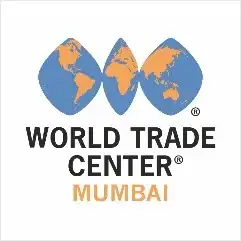

CIMR’s 7th International Research Conference on ‘Navigating the future, The Triple Bottom Line Approach.’ was held on 19th and 20th Jan 2024.
The conference brought industry experts, academicians, government Organisations and policymakers on a common platform to deliberate and come up with pragmatic solutions for long-term sustainability solutions. The aim was to facilitate knowledge exchange, build capacity and discuss ideas against the backdrop of the changing socio-economic situation, among stakeholders to contribute to the sustainable agenda. The conference adopted a multidisciplinary approach to identify opportunities, and issues and develop solutions based on the theme and the sub-themes of the conference.
The conference has been successful in obtaining participation from industry, academia, and the student fraternity nationally and internationally. The number of research papers were very encouraging and is contemporary with relevance to the theme of sustainability. The Conference received 82 research papers / case studies/ industry papers from Academia, Research Scholars, Students, and Industry from, Bangladesh, Botswana, India, Indonesia, Japan, Jordan, Sri Lanka, Uganda, United Kingdom and United States of America.
Day 1: Friday, 19th Jan 2024
The day started with the auspicious ceremony of lighting the lamp of knowledge by the dignitaries present. Pandit Shri Shridatta Haldankar, President Chetana Trust graced the conference. Dr. Nandita Mishra, Director, CIMR, introduced the conference theme and the objectives of the conference. Dr. Madhumita Patil, CEO, CRKIMR and CIMR declared the conference open after her inspiring address on sustainability practices.
The inaugural session on 19th Jan 2024 was graced by Dr. Vijay Kalantri, Chairman, WTC, Mumbai, as the Chief Guest where he set the context by highlighting the focus areas of ESG approach and how the triple bottom line approach can contribute to a sustainable future.
Mr. Abhijit Ghorpade, Director, State Climate Action Cell, delivered his keynote address and shared some major initiatives of “Maharashtra’s Climate Action”.
Prof. (Mrs.) R. Lalitha S Fernando, Public Administration, delivered a presentation on her research findings on behalf of our International Academic Partner, University of Sri Jayewardenepura, Sri Lanka.
Ms. Jyoti Mhapsekar, President, Stree Mukti Sanghatana (SMS) shared her experiences and inspired the audience to adopt innovative best practices for waste management. SMS, an NGO has created a positive impact on solid waste management and programs for achieving SDGs by providing decent work for women waste collectors.
We thank dignitaries from Chetana’s, President, Shri Shridatta Haldankar, CEO, Dr. Madhumita Patil, Dr. Nandita Mishra, Director, CIMR and Prof. Suhas Gharat, I/C Director, CRKIMR for their presence.
The CIMR - WTC capacity building workshop, 'Capabilities, Capacities and Connect – The Triple Bottom Line approach" was conducted by :
The workshop was moderated by Prof. Dr. Mahesh Luthia, Conference Convenor.
The day witnessed research paper presentations by international researchers (online) and students of CIMR, facilitating the dissemination of knowledge within the academic community and beyond.
Day 2: Saturday, 20th Jan 2024
Dr. Mukund Rajan, Chairperson, ECube Investment Advisors graced the Conference as the Chief Guest who highlighted industry practices responding to green initiatives and the call for action at global and local levels for them to become sustainable.
Dr. Srinath Sridharan, Policy Researcher & Corporate Advisor delivered his keynote address stating ESG as a value system necessitating resilience. He expressed his desire to see Chetana’s playing a pivotal role in interconnecting ESG with societal values in the Indian Context.
The Panel Discussion - ‘Building a Sustainable Ecosystem’ deliberated on the trends and industry practices associated with implementing the TBL approach. Our esteemed panelist :
The panel discussion was moderated by Dr. Nandita Mishra, Director, CIMR
The online panel discussion - ‘Global Trends in Building a Sustainable Ecosystem’, deliberated on diverse perspectives on ESG practices in the global context. Our esteemed panelist :
The online panel discussion was moderated by Mr. George Abraham, Chairman & M.D. at The GA Group Pte Ltd, Singapore.
Prof. Stephen Drinkwater Deputy Dean, Research and Knowledge Exchange, Director, CSRM, Faculty of Business and Law (FBL), delivered an online address on behalf of our International Academic Partner, University of Roehampton, London.
Academic Researchers, Research Scholars and students from India as well as internationally Bangladesh, Botswana, Indonesia, Japan, Jordan, Sri Lanka, Uganda, United Kingdom and United States of America presented their research paper contributing to the overall objective of facilitating knowledge exchange and recommend solutions against the backdrop of the changing socio-economic situation, among stakeholders to contribute to the sustainable agenda.
Best Paper Awards in different categories were presented to researchers.
The valedictory address - ‘Sustainability leadership for Business transformations” was delivered by Ms. Lalita Chandel, Engagement Manager, Sustainability, APAC ANZ, TCS.
Chetana's Institute of Management & Research
6th International Research Conference
On
‘Building Resilience in Business and Beyond’

Saturday, 9th April 2022
Mumbai
The 6th International Research conference at Chetana’s ‘Building Resilience in Business and Beyond’ was a memorable success! The conference took place in the presence of distinct personalities from India and abroad, the highly enthusiastic faculty members and the students of CRKIMR and CIMR.
The inaugural session started with valuable insights on Indonesian education from our Guest of Honour Dr.Chairil Korompot,Chair ELEPE Universitas Negeri Makassar(UNM), Indonesia. Our Chief Guest, Sanjay Lutheran, MD Mattel EMEA, UK, described how 'resilience starts with changing mind-sets and not just strategy'. The Keynote Speaker, Mr S.P. Raj, Chair & Professor of Marketing, Whiteman School of Management, aptly added that ‘Fortune always favours the Prepared’.
The first panel discussion was conducted online on the topic- 'Innovation-The Roadmap for Business Resilience'. The discussion threw light on how Innovation has taken centre-stage and is building resilience in businesses. We had four international speakers for this discussion. Ms. Anuprita Bhomick, Head of Customer Experience, Google Devices and Services, Singapore, higlighted that 'loyalty and advocacy is resilience'. Dr. Gerard Athaide (A proud Alumnus of Chetana's) Prof.Marketing – Loyola University Maryland, presented his case on how 'innovation acts as a source and impetus for building resilience'. Dr. Elina Naydenova, CEO and Founder, Feebris, UK emphasised that the frameworks for development through Artificial Intelligence are indeed strategies for resilience. Mr. George Abraham, Chairman and MD, GA Group, Singapore moderated the discussion and added different perspectives to the discussion.
The second panel discussion was held offline on the topic-'Business Resilience through Agility and Technology'. The session was very engaging and quite enriching. Mr. Lalit Popli, COO, ARCON, spoke about ‘Learning to Upskill’, and how Technology alone doesn't make us resilient, 'making decisions at the right time' does. Mr. Mahesh Rathod, CEO, BeLocal Consulting LLP, threw light on the importance of Networking and Relations in today's business world through his insights on how ‘Resilience is nothing but Courage’. Mr. Chandan Agarwal, CMI PDC Director, South Asia, National CMI Director, Sri Lanka at Unilever, rightly pointed out ‘If you resist change you will perish’.
The moderator of the panel, Mr. Vikaas Sachdeva (A proud Alumnus of Chetana's) CEO, Emkay Investment Managers Limited added, ‘Don't underestimate the power of luck, but be fearless’.
We thank our high-spirited CEO of CRKIMR and CIMR Dr.Madhumita Patil, charismatic director CRKIMR Dr.Kalim Khan and energetic Director of CIMR Dr.Nandita Mishra along with the faculty members and non-teaching staff for ensuring that the conference was a grand success and a knowledge fest!
Overall, it was a very enthusiastic, interest-driven, and enriching opportunity for our students. At Chetana’s we don’t miss any chance to help our students grow and acquire new skills and learn more about the industry to become better future leaders and we promise to keep it going.
Indeed ‘Leading the Change is Resilience’
ON
While everyone got comfortable with online classes, there was a need for an intellectual learning mechanism to groom the students and keep them thinking in a virtually oriented environment.
The international conference at Chetana was the perfect opportunity to encourage the students to participate, present, digitally witness and learn about not just one but four different areas of expertise. The discussions and learnings of the conference mainly revolved around “Harnessing India's Resources to make India Self-Reliant in collaboration with ASEAN countries".
The conference began with the address of our Guest of Honour, Prof. CH. Ibohal Meitei followed by the keynote address by Mr. K. V. Rao from Singapore who deliberated on India’s capability to achieve self-reliance and in collaboration with other countries. We were honoured by the presence of Mr. George Abraham, from Singapore Indian Chamber of Commerce and Industry (SICCI), as our Chief Guest.
For our Supply Chain conclave, we had great speakers like Dr. Chalong Suktong, Mr. Khin Maung Soe, Mr. Ishantor Sobhapandit, and Mr. Krishan K. Batra. There was a thorough discussion on the “India-ASEAN Connectivity & Global Value chain”. The leaders spoke at length with our students about Myanmar’s preference towards China for trade, possibilities of enhancing cultural ties, the impact of trade agreements on the financial markets of the countries, etc.
The ASEAN summit was graced by the presence of six distinguished speakers like Mr. George Abraham, Mr. Laldinkim Sailo, Mr. Lourembam Bikram, IAS Dr. Sriparna Baruah, Mr. Dato Ramesh Kodamal, and Prof. CH. Ibohal Meitei. Discussions on Organic farming and export potential of the North-Eastern states, land road projects under construction, potentials of Bamboo cultivation in the North East, and how improved connectivity can be brought about by highways and digital gateways, were discussed. It kept our students engrossed, waiting for more.
The Agri-Business and Pharmaceutical Conclave imbibed great enthusiasm and courage in our students to think in terms of a self-reliant Agriculture and Pharmaceutical base in India. Dr. Devesh Roy and Dr. Phadke addressed the trade deficit situation in our country, the presence of an innovative eco-system, and agribusiness start-ups. Mr. Koustubh Kanade, Mr. Mudda, Mr. Deborshi Moitra, and Mr. Daara Patel spoke at length about nutraceuticals and immunity, government regulations and norms, and vaccinations.
Overall, it was a very enthusiastic, interest-driven, and enriching opportunity for our students. At Chetana’s we don’t miss any chance to help our students grow and acquire new skills and learn more about the industry to become better future leaders and we promise to keep it going.
For this conference, our supporting partners were:
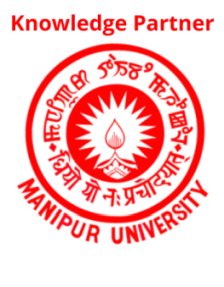
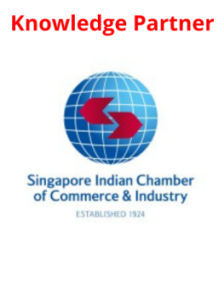
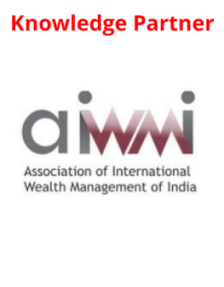

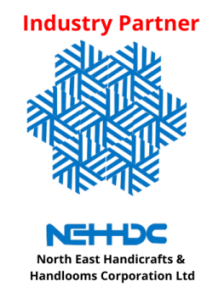
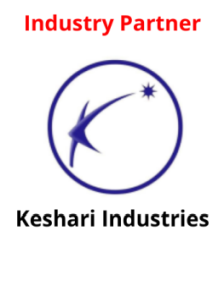
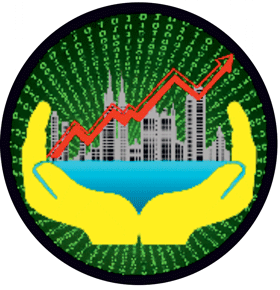
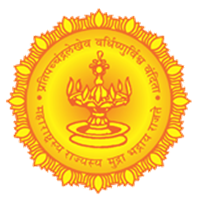
January 18, 2020
International Water Conference – A Water Secure World: A Report
Chetana’s Institutes of Management and Research hosted a day-long international conference on a water secure world on the campus, on January 18, 2020. The event provided a forum for researchers and practitioners in the field to share ideas and research.
The event was inaugurated by Dr Madhumita Patil, CEO, CIMR. In her inaugural address, Dr Patil spoke about how the conference was driven by students , outlined the various initiatives taken by CIMR Founder-President, the late Shri Madhukarrao Chaudhari, towards water conservation and management, and also emphasized on the need for water management and security.
After the event was declared open, the keynote speaker, Ajay Popat, President, Ion Exchange India Ltd, showed the students a compelling video based on the vision of Dr. A. P. J. Abdul Kalam on what the year 2070 would look like if we did not adopt water conservation practices with immediate effect. He took a more technical approach and provided us with facts and figures to stress the serious problem of water scarcity and its consequences for the socio-economic development of the country. After listing out some of the major projects that his company, Ion Exchange India Ltd, had undertaken to increase water security, Mr Popat concluded by saying that water was everyone’s business and that we could make a difference only if we came together in the cause of water conservation.
Niv Pintow was our international speaker from Israel and owner, Livnat Engineering. He focused on the difference between a crisis, a water crisis and a water management crisis. Using Israel as an example, he provided us with the various methods implemented towards becoming a water-secure country. He emphasized on how trust between the people and the government was crucial, and concluded by stating that people would use water conservation techniques once we put a price on water. He was glad to see so many students of Chetana’s Institutes of Management and Research present for the international water conference on a Saturday morning.
Mr Rajendra Pawar, Secretary (CADA), Govt. of Maharashtra, took up Mr Pintow’s point further and explained how Israel did what India was now striving to do. He explained the difference in water demand between rural and urban areas, and threw light on the various water conservation initiatives undertaken by the state government. Mr Pawar concluded by urging the students to act as ambassadors to spread awareness about climate change and the need for water security.
The three speakers were then presented with tokens of appreciation followed by a vote of thanks by Dr Hufrish Majra, Faculty of Marketing at CIMR, who summed up the key takeaways from our speakers and reminded us that water security was ultimately in our hands.
The conference continued with a panel discussion on Innovative Practices in Water Management. The panel – which included Mr Harish Chandar (Director, India tech), Mr Vinay Deodhar (Director, Clean tech solutions), Mr Romiel Samuel (Executive Director, Indus Water Institute) and Mr Milind Murudkar (MD, Saisanket Enterprises) was moderated by Dr. Sandeep Nemlekar (Associate Professor, CIMR).
The panel discussion began with Mr Deodhar telling us about how wastewater should not be considered a waste and the need for shorter transport routes to reduce water wastage. Mr Chandar emphasised on the integration of AI, IoT and Cloud Computing in water management and how technology was the way to sustainable water security. Mr Samuel made us realise about the lack of awareness with regard to water conservation and the various available career opportunities in the field. Mr Murudkar cited examples of various crops and explained how different cultivation techniques impacted water conservation.
Dr Nemlekar then posed questions to the panel.
On whether copying Israel’s practices was the way to go, Mr Samuel responded by saying that although they would benefit India to some extent, there was no single solution and the answer would vary based on the problem at hand. They then informed the students regarding the various career opportunities in the water sector, following by which the panel was opened to questions from the student-audience.
The students then conducted a research paper presentation in three tracks, followed by a valedictory address. The conference elicited participation from academia, industry and government.
(With inputs from Anshuman Singh, Bhavesh Bhole and Thayn Trikannad)